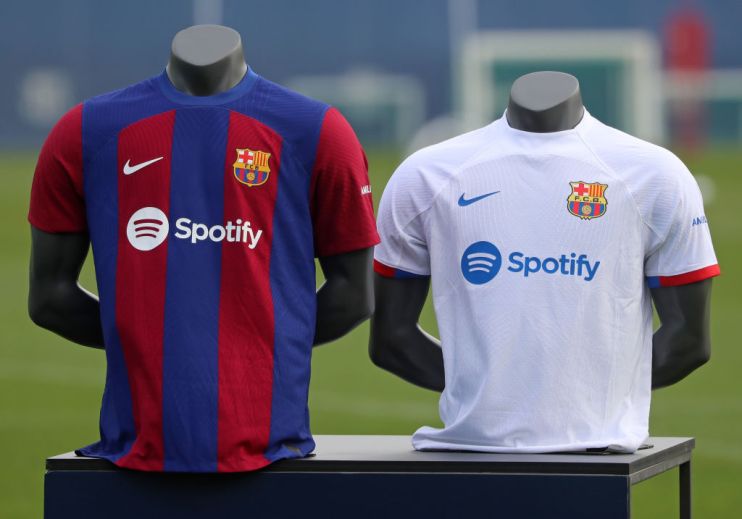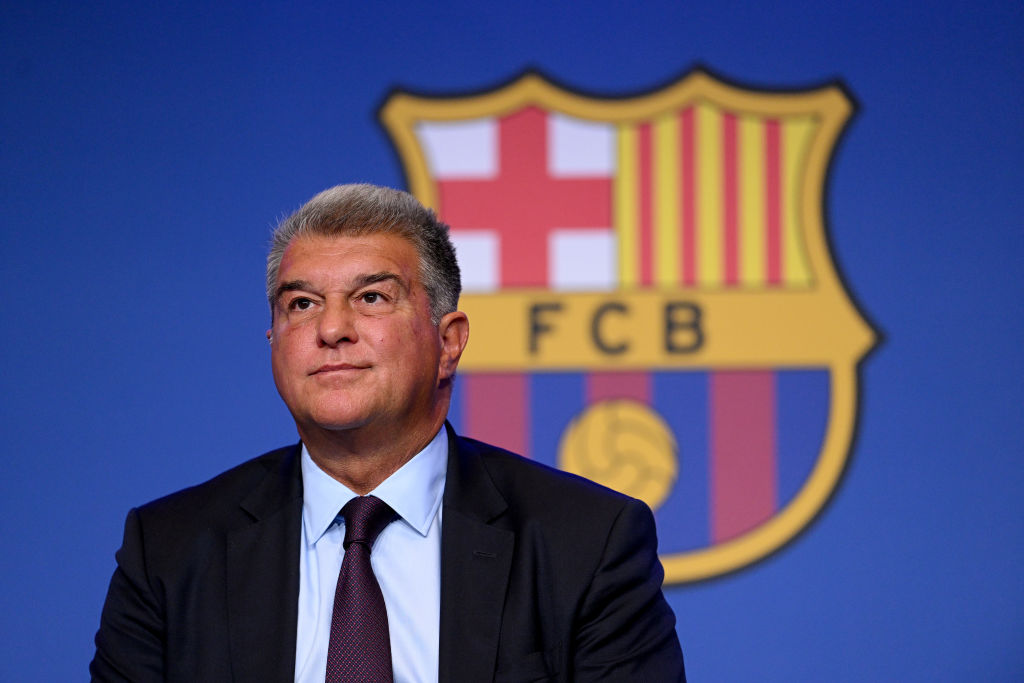Is FC Barcelona’s plan to ditch Nike for in-house kits the future or just posturing?

If club president Joan Laporta gets his way, the FC Barcelona brand could really be about to become – as they are fond of saying – “mes que un club”.
Laporta revealed last week that the club is not only considering plans to end one of the longest and most iconic kit deals in football with Nike, but also talked up the possibility of a unique in-house production approach.
A potential opportunity with one of the world’s most marketable and successful sides will no doubt put leading sports brands on notice, but could in-house production be the future?
Laporta has long sought alternative avenues for finance and it is no secret that the cost of manufacturing kits is minimal in comparison to their sale price.
Barcelona’s fundraising methods are becoming increasingly complex and innovative too, perhaps best evidenced by the much-talked about agreement with Sixth Street for a percentage of their LaLiga TV rights.
By producing their own kit, the club would create a new income stream and retain all profits from sales – something which current kit deals do not account for.
Such a move might also address any legal implications related to ending a deal with Nike earlier than contracted, as the agreement reportedly runs until 2028.
There may be heavy restrictions included in the current contract – or any further deal to terminate early – relating to Barcelona’s use of another kit producer.
This could force the club’s hand into an interim period of in-house kit production until it is able to source a new lucrative kit deal.
In doing so, Barcelona could establish a sportswear brand that poses competition to industry giants that could go beyond football.
Barcelona already internally produce non-sportswear products and, given the club’s following, there is potential for an even bigger income stream which could be drawn from sport, entertainment and culture.
However, such an approach is also fraught with problems – not least FC Barcelona would have to take on much of the legwork required to produce and sell kits.

There would need to be designers to conceptualise kits, a textile production company to bring these to life, logistics to ship worldwide and then distributors to sell – and even that is just a simplified overview of the amount of work and resources major sportswear brands have at their disposal.
But Barcelona are also not the first club to consider such a move. Does anyone remember the German brand gooole.de in the early 2000s? Didn’t think so.
Borussia Dortmund’s own brand of kit and sportswear was created to generate new revenues, but it had a difficult time establishing itself and was eventually put out of its misery eight years later.
Barcelona would not even be the first in Spain either. Athletic Bilbao opted to create its own brand which lasted almost a decade in the early 2000s, while Real Mallorca and Real Betis have done the same, even if their ventures did not last as long.
With on-field results needing to improve, much-documented financial issues and the sports politics which Barcelona has to concern itself with, you do wonder if Laporta even has the bandwidth to take on such a project or was just looking to get the best deal possible.
But if we have learnt anything over the years, it’s that there can be no surprises when it comes to Barcelona.
Jonathan Askin is head of commercial in the London office of law firm JMW Solicitors.